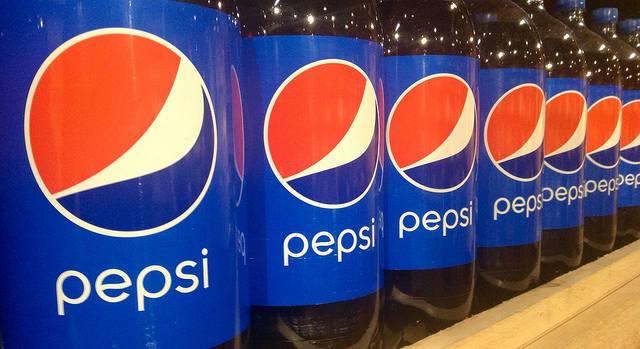
For many analysts the news just keeps getting worse for Philadelphia, thanks to its new soda tax.
Last June, lawmakers had grand plans for the city's tax on sweetened beverages. They said the 1.5-cent-per-ounce tax would help fund children’s education programs, including a pre-K expansion, park and recreation center updates, and a backup fund for city projects. They made some concessions along the way: After cutting the proposed tax from 3 cents to 1.5 cents per ounce, they expanded the list of eligible products to include artificially-sweetened drinks beyond sodas.
A cent and a half doesn’t sound like much, right?
Except it is. It’s a huge increase in cost for Philly soda fans. As consumers discovered when the tax kicked in on Jan. 1, it works out to about a buck more for a 2-liter bottle of their favorite fizz. A 12-pack of soda cans can see an increase of more than $2.
But the greatest mistake city legislators may have made was a failure to consider their support base: the consumers who would be expected to pay the tax, the stores that rely on soda sales and, of course, the manufactures that produce the products -- many of which do so right there in Philly. Like – ahem – Coca Cola and Pepsi.
And lawmakers also didn’t take into consideration that a city’s ability to leverage taxes only goes as far as its geographic boundaries. So when consumers discovered the sticker price of their weekly soft drink purchase, some analysts say they headed for the next city to do their shopping.
Supermarkets noticed the change pretty quickly. Some retailers said soda sales dropped 30 to 50 percent within the first few weeks, sending a jolt through the commercial sector. If you figure that the U.S. owns more than 20 percent of the worldwide consumption of carbonated soft drinks alone, and Philly is a major center for the two biggest drink manufacturers, it isn’t hard to understand consumer response.
As Tim Worstall, a columnist for Forbes put it: “Taxes change the price system. Changes in the price system change peoples' behavior.” And tax structures that change behavior can have unintended impacts on industry.
On March 1, Pepsi announced that it would lay off as much as 20 percent of its Philadelphia staff as a result of the local slump in sales. The job cuts reverberated across the board, including frontline and supervisory positions.
Philly may be the first “major” city to successfully pass a soda tax, but it isn’t the first global location to get away with it. The city of Berkeley, California, implemented its own tax in 2014, and for a different reason: It wanted to encourage better eating habits.
Mexican lawmakers tried something similar. Each established its own criteria for a drink tax, noting that such taxes were not intended to raise money but to persuade citizens to consume less sugar. Both faced unique challenges in implementing the tax, and both saw positive results.
At the end of one year, both Berkeley and Mexico reported a drop in sugared drink sales. According to a study conducted by researchers at the University of California, Berkeley, there was a 21 percent drop in sales within the city limits, and a 4 percent increase in sales in adjacent cities like Oakland, where the tax wasn’t in effect. But there was also evidence that people were drinking more water instead of soda at home.
Mexico found a similar drop in soda sales, particularly in low-income households, where obesity was a statistical problem. As in Philadelphia, communities struggled with the offset to industries that rely on soda drink sales. But according to researchers, the challenges have been worth the gains.
There are a few interesting takeaways from Philly’s soda sales drop (which, of course, will affect the city’s ability to raise the $91 million it wants for its education and recreation programs):
- People can be fickle. They don’t like to be told they should do something for their health, but they may be more willing to go along with a tax that helps them do that rather than revenue for a program they don’t use. Just look at how hard it is to pass school levies in neighborhoods that don’t have children.
- Consumers will travel. Take away their sugar (or their cigarettes, or their booze, as history has proven) and people will do strange things, like shop in the next town over or the next state, for that matter.
- Businesses don’t like losing money to fund programs they won’t use, either, like expanded pre-schools and city parks. But getting public-private partnerships together that they can in turn, promote publicly, often does.
Perhaps there's a takeaway for soda drink manufacturers as well. Philadelphia is only the more recent in a long list of cities that have tried, with some success, to impose a soda tax. So have countries like Ireland, the U.K. and Hungary (that taxes junk food in general). So the opportunity may be here for soda companies to initiate their own "public-private partnership" in terms of seeking out product lines that will enhance (and not fight) the message that cities like Berkeley and countries like Mexico are trying to send to young consumers.
And who knows, maybe along the way, there will be room for dialogue about new ways that consumers and businesses can build those much-needed public parks and schools in Philly.
Flickr/Mike Mozart
Jan Lee is a former news editor and award-winning editorial writer whose non-fiction and fiction have been published in the U.S., Canada, Mexico, the U.K. and Australia. Her articles and posts can be found on TriplePundit, JustMeans, and her blog, The Multicultural Jew, as well as other publications. She currently splits her residence between the city of Vancouver, British Columbia and the rural farmlands of Idaho.














